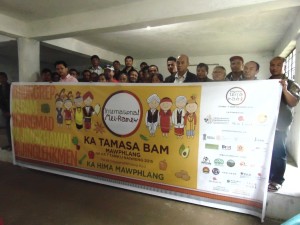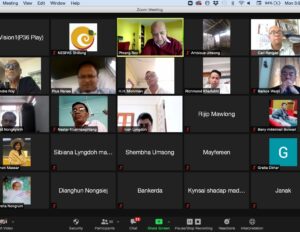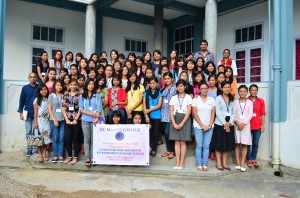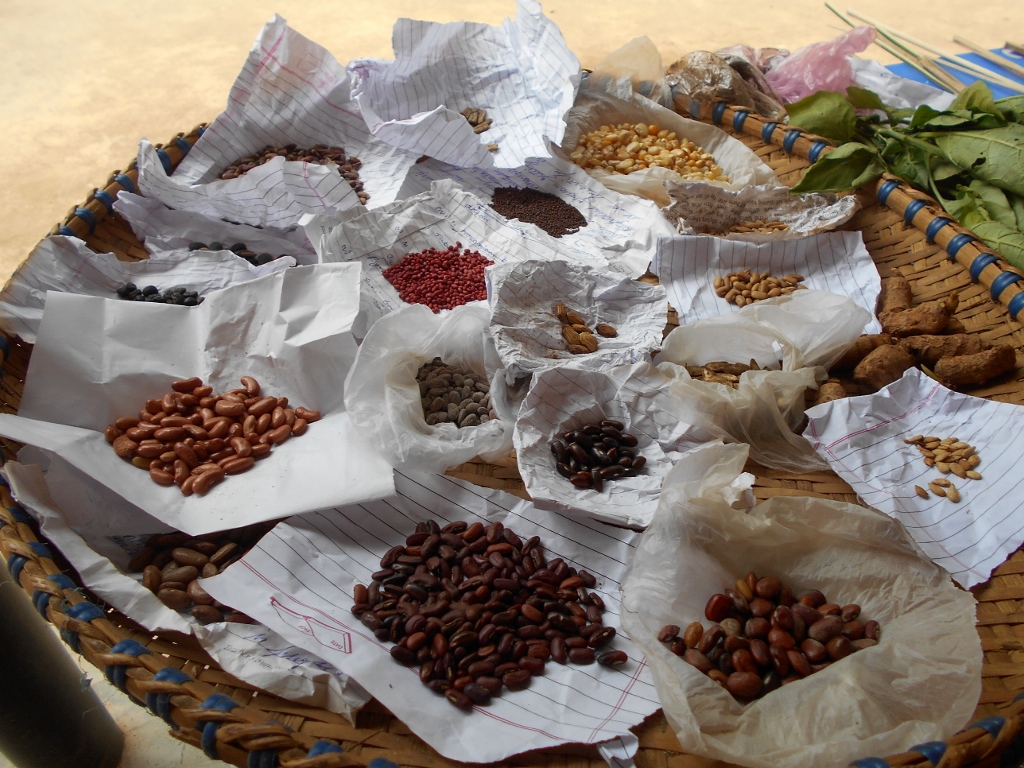
On 31st July, the children of Seng Kynthei Pres LP School of Raid Iapngar, Sohliya, Ri Bhoi District inaugurated their first ever School Garden. NESFAS Associate Trainee, Michael Shadap accompanied by three interns from the Social Work department, Women’s College, Shillong, Athipro Nipune, Tennie Lean Syiemlieh and Arki Dari, attended the ceremony to
guide the children and their teachers in the plantation process and witness the first sowing. Despite the heavy rains, at 2.30 in the afternoon, after a session on the importance of indigenous food, seed knowledge and waste management, the whole group made its way to the backyard, prepared the soil for seeding and planted five types of seeds which included pumpkin, luffa and three types of beans – winter, summer and flat beans, locally known as rymbai tari.
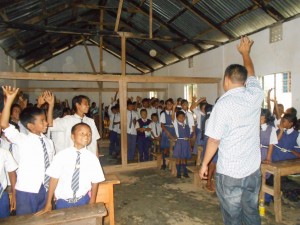
The initiative, though supported and promoted by NESFAS, could only come to realisation with the support of the community, the school and the children. It should come as no surprise that the school board members were mulling over having a school garden for months before the NESFAS involvement. “We are simply triggers”, said Michael.
“We are looking forward to what this garden will produce”, said Mr. RR Ronghang, a faculty of the school and the assigned caretaker of the garden.
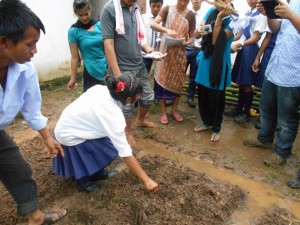
Speaking about the nature of the garden and the geo-location of the area, Michael projected that water will not be a problem for the garden and that the soil is quite fertile despite the garden’s location on a slope.
NESFAS recognises the potential for School Gardens to become classrooms set in a schoolyard, not to mention a source of nutrition for the students there. Given that the midday meal programme, sponsored by the government of India, provides food for in most of the schools in the state, the school gardens also lead to self-sufficiency in terms of fresh seasonal vegetables, which are not only indigenous but also chemical free, where the midday meal scheme only caters to dry food grains.


